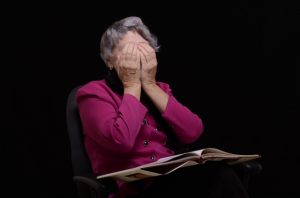It is an unfortunate reality that some people have no qualms using undue influence for the purpose of obtaining “gifts” from an individual who is elderly, ill or weak. Our Florida probate attorneys have seen these cases arise most frequently in cases involving nursing home residents, elderly parents or ailing grandparents. Those who allege “undue influence” (which is a specific charge in probate litigation) are usually surviving loved ones doing so with the intention of challenging the validity of a lost loved one’s will, trust or inter vivos transfer (transfer of property made during one’s lifetime).
Proving undue influence is not a simple matter or low bar. One has to prove that the victim’s mind was “so controlled or affected by persuasion or pressure, artful or fraudulent contrivances or by the insidious influences of persons in close confidential relations” that he or she isn’t knowingly or voluntarily acting of their own accord, but instead carrying out the will of someone else. This was outlined in the precedential 1925 Florida Supreme Court case of Peacock v. Dubois.
In most cases, it is the plaintiff asserting undue influence who typically has the burden of poof. Prior to 1971, the burden of proof in these cases was reached with enough evidence to raise the undue influence presumption, at which point the proof burden shifted to the defendant, who then had to prove it didn’t occur. Then there was the key Florida Supreme Court case of Carpenter v. Carpenter, justices ruled that even the establishment of an undue influence presumption didn’t shift the proof burden to the defendant, at least as it pertained to will contests. About a decade later, the court decided the same rule in cases alleging inter vivos transfers. Continue reading
 Broward Injury Lawyer Blog
Broward Injury Lawyer Blog



